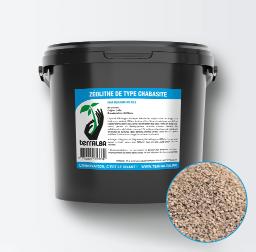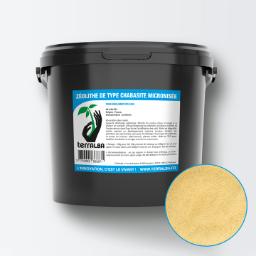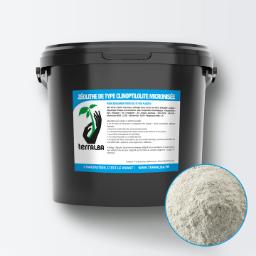Diving into the heart of a multi-talented mineral
Imagine a rock born of the power of volcanoes, a stone that “breathes”, that filters, that exchanges, that stores... A kind of geological miracle fashioned by nature over millions of years. This fascinating rock exists, and it has a name: zeolite. Much more than a simple rock, this mineral is a concentrate of natural technology whose unique properties have applications in an incredibly wide range of fields, from cutting-edge industry to our everyday lives, and even... in our gardens!

The Fascinating World of Zeolite
In the Beginning: A Mineral Born of Fire and Water
Zeolite is no ordinary rock. It's a mineral belonging to the hydrated aluminosilicate family. Its geological description tells us that it forms when volcanic ash and rock rich in silica and alumina come into contact with water (often alkaline, as in salt lakes or the seabed) over very long periods. Temperature and pressure also play their part in this slow transformation.
There are dozens of types of natural zeolites (Clinoptilolite, Chabasite, Mordenite, Phillipsite, Analcime...), each with its own structural nuances and specific properties. The diversity of these variations gives each type slightly different characteristics, which explains why some zeolites are better suited to specific applications.
Superpowers explained simply
This unique structure gives zeolite remarkable properties, confirmed by numerous scientific studies:
The Art of Adsorption (“Molecule Trap”): Thanks to its large internal surface area and the nature of its walls, zeolite can attract and retain various molecules (gases, liquids) on its surface. It can trap water molecules, odors, certain gaseous pollutants... Its behavior is that of a selective trap.
Precision filtration (“Molecular Sieve”): Its calibrated pores let in only molecules smaller than a certain size. This enables highly efficient separation of gas or liquid mixtures.
Smart Ion Exchange (“Selective Magnet”): The presence of aluminum in its structure gives it an overall negative charge. To compensate, positive ions, such as potassium and calcium, are lodged in the cavities. But these ions are mobile!
Remarkable stability: Zeolite is a robust material. It is resistant to high temperatures and a wide range of chemical agents, enabling it to be used in a variety of conditions without degradation. Its structure remains stable even when water is absorbed/desorbed.
Far from being a mere geological curiosity, zeolite is at the heart of numerous treatment and manufacturing processes that improve our daily lives and protect our environment. Here are just a few examples of its incredible versatility
Pure Water Department

Drinking and waste water treatment: Zeolite is the filter material of choice. It eliminates ammonium and certain heavy metals, and can even help treat radioactive water. Its ion-exchange properties also soften water by capturing calcium and magnesium.
Aquarium and fish farming: It maintains healthy water for fish by controlling toxic ammonia levels, contributing to their good health.
Swimming pools: Used as an alternative or complement to sand in filters, it ensures clearer, healthier water.
For fresher, odor-free air
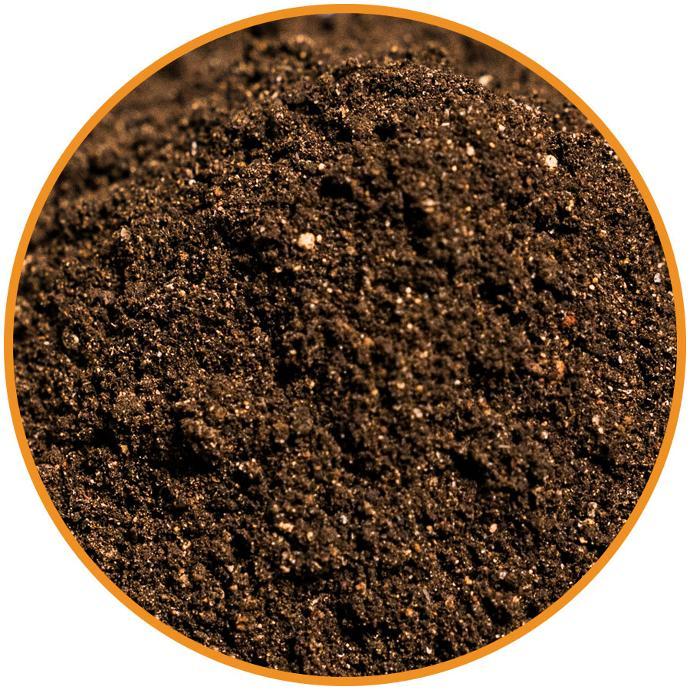
Air Purifiers: Traps volatile organic compounds (VOCs) and other gaseous pollutants on its large internal surface...
Odor control: Its adsorbent power makes it perfect for animal litter, air fresheners (fridge, car...), industrial filters... It captures the particles (molecules) responsible for unpleasant odors.
Swimming pools: Used as an alternative or complement to sand in filters, it ensures clearer, healthier water.
A Key Player in Industry and Materials 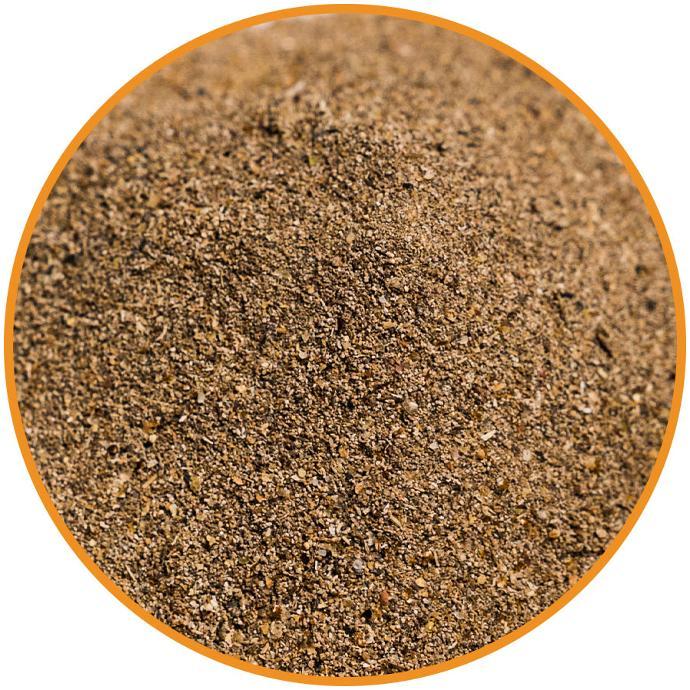
Chemical Catalysis: Industrial chemistry loves it! It is essential in oil refining to produce gasoline (catalytic cracking). Its pores act as tiny chemical reactors, often at high temperatures.
Detergents : Historically used to soften water and improve the effectiveness of laundry detergents.
Composite materials: Mixed with polymers or other materials, it can impart specific properties (gas barrier, strength, etc.). The use of zeolite in composites is an active area of research.
Support for Agriculture and Livestock 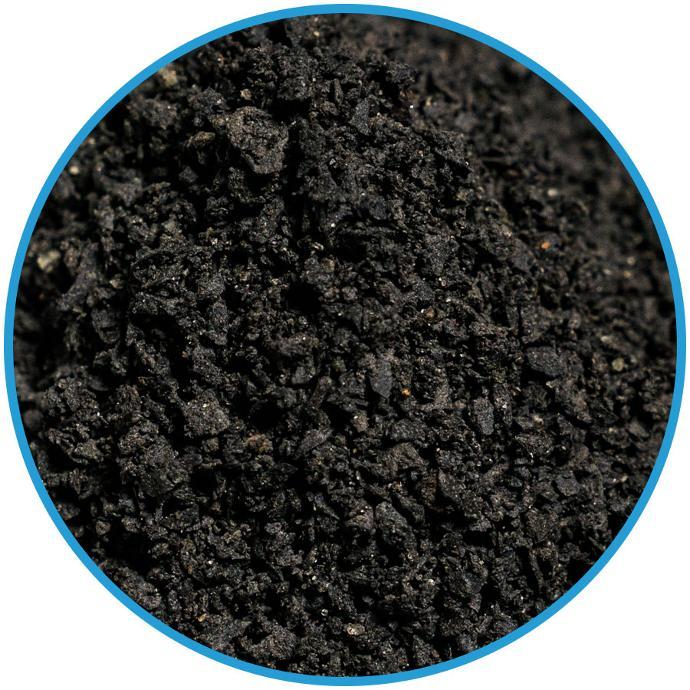
Animal feed: Added to rations, it improves feed efficiency, reduces ammonia odors in buildings and can trap certain toxins, promoting animal health.
Livestock Hygiene: Used as an absorbent in bedding.
Soil amendment: Even outside “domestic” gardening, agriculture uses zeolite to improve water retention and fertilizer efficiency on a large scale.
In Sustainable Construction 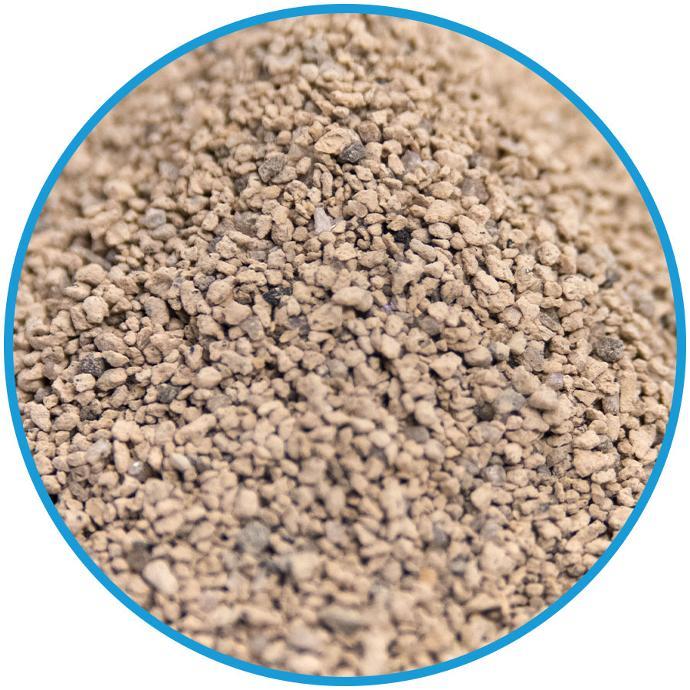
Cements and concretes: Added as pozzolan, it reacts with lime to form additional binders, making concrete stronger and more durable. It is an example of a high-performance cementitious composite material.
- Lightweight materials: Can be used to manufacture lightweight concrete or bricks.
The Green Revolution - Zeolite In Your Garden

The Key Benefits of Zeolite for the Modern Gardener
Intelligent Water Management
Zeolite acts like a microscopic sponge, storing water and gradually releasing it as your plants need it. This property makes it possible to :
Reduce watering frequency by 20 to 40%, a considerable advantage in times of water shortage.
Avoid water stress, which weakens plants and makes them vulnerable to disease.
Prevent water stagnation and associated root problems in heavy soils
Maintain optimum humidity in the root zone, essential for healthy plant development
Nutrient tank
Thanks to its remarkable cation exchange capacity (CEC), zeolite :
Captures and retains nutrients such as nitrogen, potassium, calcium and magnesium, reducing leaching during watering or rainfall.
Gradually releases nutrients according to plant needs, ensuring balanced, long-lasting nutrition
Optimizes the efficiency of organic and mineral fertilizers, reducing applied doses by up to 30%.
Stabilizes soil pH by acting as a natural buffer, promoting optimal nutrient availability
Floor Architect
The physical structure of zeolite, especially in granular form, positively transforms your soil:
Permanently improves aeration of heavy, clayey soils, facilitating root respiration
Reinforces the cohesion of sandy or light soils, reducing erosion
Creates ideal porosity for the development of a healthy, extensive root system
Offers exceptional stability over time (50+ years), unlike other amendments which degrade rapidly
Guardian of Purity
Zeolite actively contributes to a healthier environment for your plants:
Traps certain heavy metals potentially present in urban or peri-urban soils
Reduces the bioavailability of pollutants by binding them to its structure
Neutralizes certain mineral excesses that could unbalance your soil
Promotes a biological balance conducive to the development of beneficial micro-organisms
Garden-specific applications
For potted plants and window boxes
The use of zeolite in containers is particularly beneficial:
Mixed with 10-15% of potting soil, it considerably reduces watering requirements.
Prevents substrate compaction, a common problem in pot cultivation
It prolongs the life of potting soil by maintaining its structure
It limits nutrient leaching, which is particularly problematic in pots with drainage.
For the vegetable garden
Vegetable crops are particularly receptive to the benefits of zeolite:
Improved yields (up to 20% according to some studies)
Nutrient-rich vegetables with stronger flavours
Better post-harvest preservation of fruit and vegetables
Reduced problems associated with soil-borne diseases
For lawns and turf
Zeolite can radically transform the health of your lawn:
Top-dressing application (5-10 kg/100m²) to improve resistance to trampling
Reduced water requirements, particularly important for large grassed areas
Better resistance to common fungal diseases of lawns
More intense, longer-lasting greening thanks to improved nitrogen nutrition
Choose Your Zeolite Ally - Our Garden Solutions
Zéolithe Chabasite 0.7-2mm
(The Soil Architect)
Description: Chabasite zeolite granules (0.7-2mm). These particles are ideal for physical work on the ground.
- Properties & uses: Ideal for improving structure, drainage and aeration. Perfect for pots, heavy or light soil, bonsai.
- Recommended applications :- Incorporation into clay soils to improve drainage (5-10% of volume)- Mixture for planting substrates in pots and window boxes (10-15%)- Drainage layer at bottom of containers (2-3 cm)- Long-lasting soil improver for beds and flowerbeds (3-5 kg/m²)
- Visible results :- Better root penetration- Reduced clogging problems- More stable soil structure over time
- Less cracking of clay soils in dry periods
Micronized Chabasite Zeolite 20µ
(The Organic Whiplash)
Description: Ultra-fine powder (20µ) of Chabasite zeolite. Provides an immense contact surface.
- Properties & uses: Fast-acting, stimulates soil life and roots. Versatile: soil mixing, spraying, addition to TCO (a beneficial soil treatment process).
- Recommended applications :- Fine incorporation into seedlings and cuttings (2-5 g/L)- Use as a foliar dusting (0.5-1% solution) to boost natural defenses- Addition to oxygenated compost preparations and compost teas (5-10 g/L)- Treatment of compacted areas in aqueous solution for deep penetration
- Visible results :- Faster, more vigorous germination- Better recovery after transplantation- Visible activation of soil microbial activity- Faster recovery from stress (drought, disease, etc.)
Micronized Clinoptilolite zeolite
(The Purifying Guardian)
Description: Ultra-fine powder (20µ) of Clinoptilolite zeolite, a mineral renowned for its filtration capacity and high silica (silicon oxide) content.
- Properties & Uses: Maximum filtration of pollutants (including heavy metals), enhanced plant protection (silica), improved crop health. Its behavior is ideal for purification and defense. Studies support its effectiveness.
- Recommended applications :- Treatment of potentially contaminated urban soils (5-8 kg/100m²)- Reinforcement of plants susceptible to fungal diseases (foliar dusting at 0.5-1%)- Improving soils with low levels of bioavailable silica- Protecting vegetable crops from environmental stress
- Visible results :- Stems and leaves more rigid and resistant- Better resistance to pests and diseases- More intense and prolonged flowering- Improved nutritional quality of fruit and vegetables
Frequently asked questions about zeolite
Yes, absolutely. The zeolites we offer are 100% natural, formed by geological processes over millions of years. They are simply extracted, purified and calibrated without any chemical modification of their structure. There are synthetic zeolites used in certain industrial applications, but our gardening products are exclusively of natural origin.
Several decades. Unlike organic soil improvers, which decompose in a matter of months or years, zeolite's crystalline mineral structure gives it exceptional stability. Scientific studies have shown that its cation exchange and water retention properties remain virtually unchanged after 50 years in the soil. It's a real long-term investment for your garden.
Exactly. Our zeolites are certified for organic farming. They fit perfectly into an environmentally-friendly gardening approach, reducing water requirements and improving the effectiveness of organic soil improvers. They contain no chemical additives and are simply the result of a mechanical transformation (crushing, sizing) of a natural mineral.
Dosages vary according to purpose and soil type. For general soil improvement, allow around 3-5 kg/m² incorporated to a depth of 15-20 cm. For pots and planters, a mixture containing 10-15% zeolite is ideal. For more specific applications, please consult our detailed user guide which accompanies each product.
No, but it optimizes them considerably. Zeolite is not in itself a fertilizer (although it does contain some mineral elements), but it does act as an “intelligent manager” of nutrients. It captures nutrients, prevents them from leaching out and gradually returns them to the plants. In this way, you can reduce your fertilizer inputs by 20 to 30% and still achieve better results.
Yes, with different benefits depending on soil type. In clay soils, it improves drainage and aeration. In sandy soils, it increases water and nutrient retention. In balanced soils, it optimizes nutrient availability and stabilizes structure. It's a truly versatile soil improver that adapts to any context.
Conclusion: Zeolite, Much More Than a Rock
Zeolite is also a perfect example of what nature can offer us when we take the time to observe and understand its most subtle mechanisms. This mineral, formed by the encounter of volcanic fire and water millions of years ago, now reveals its secrets to help us grow more harmoniously and efficiently.
By incorporating zeolite into your gardening practices, you're not just improving your soil and the health of your plants - you're part of a wider movement towards more planet-friendly growing methods.You're part of a process of innovation inspired by nature itself.
Whether you're an amateur or professional gardener, a horticultural enthusiast or simply keen to adopt more sustainable practices, zeolite deserves a place in your arsenal.Its exceptional quality/price/durability ratio makes it a wise investment for anyone wishing to garden better, with less water, fewer inputs and more results.
Don't wait any longer to discover for yourself the many talents of this mineral with unique properties.Invite zeolite into your garden and watch the transformation - your plants will thank you!

